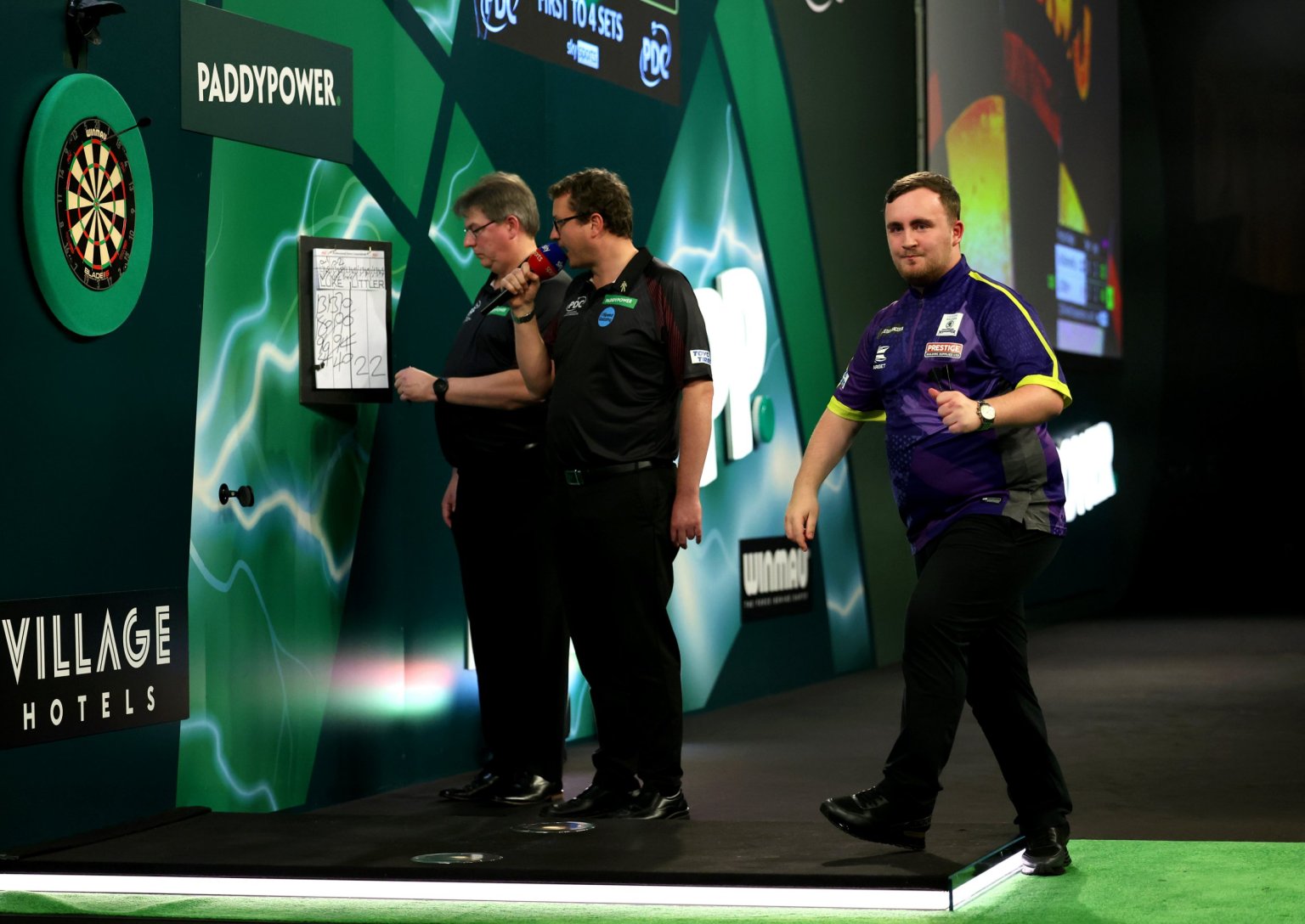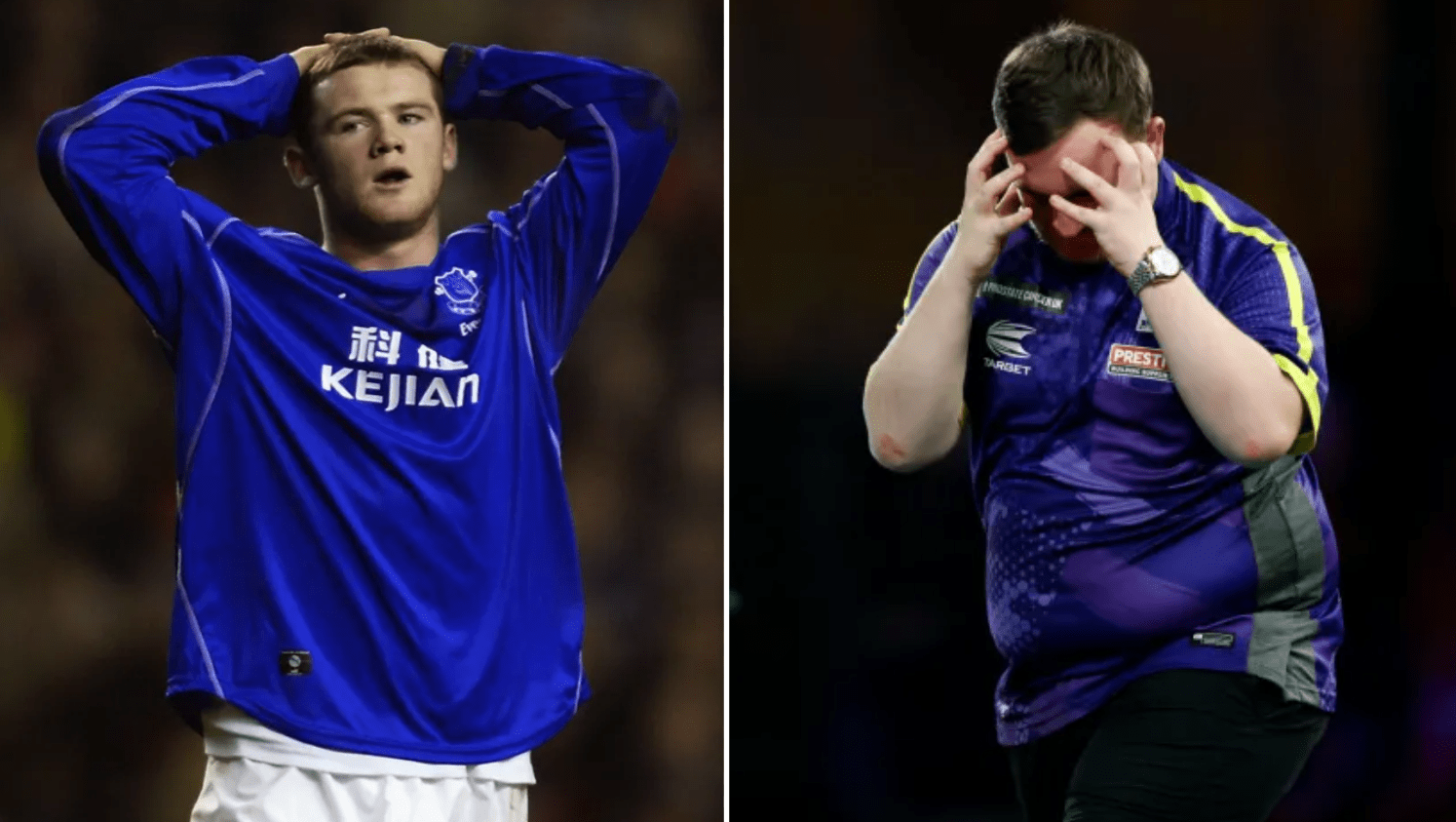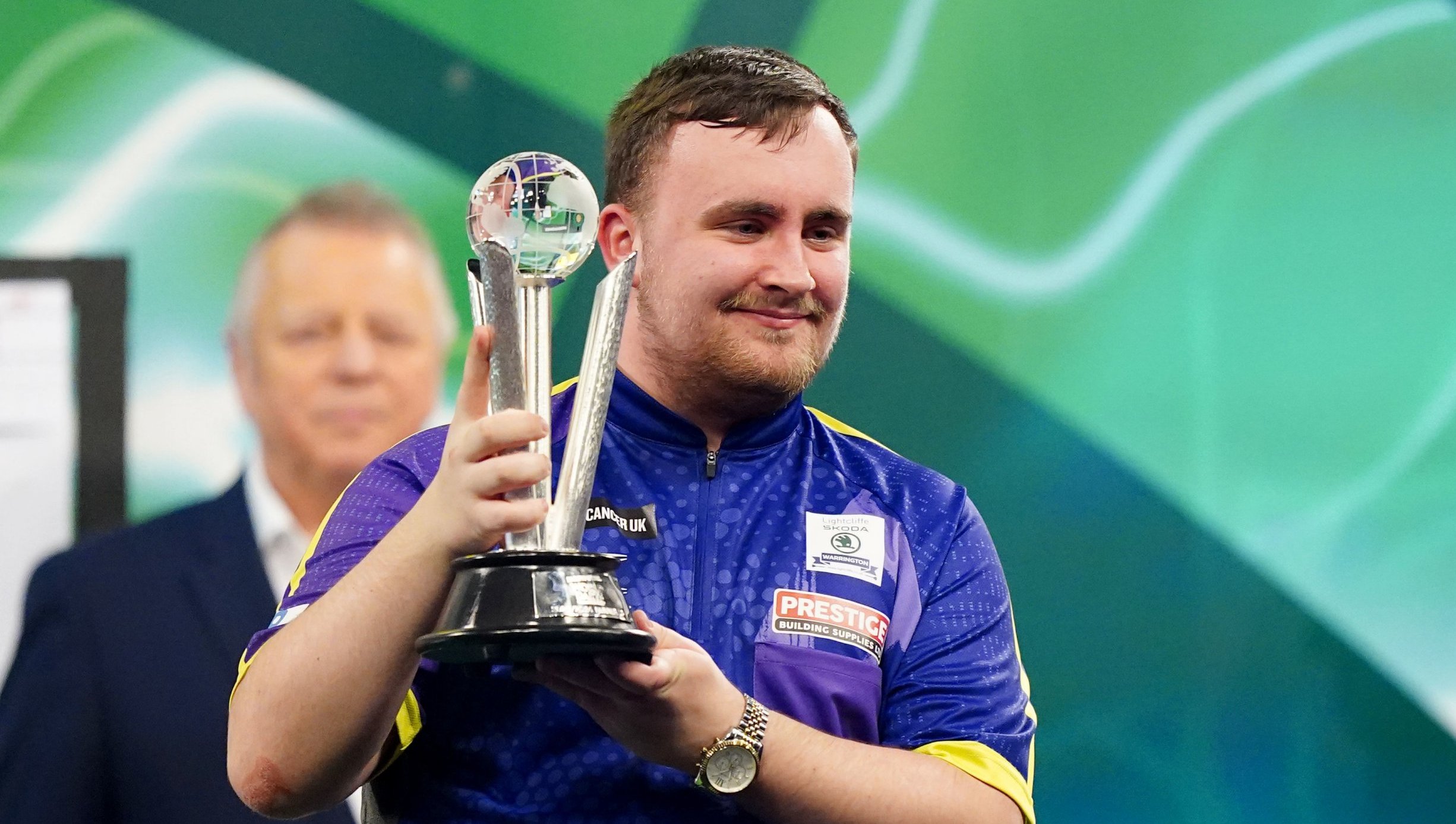At 33, Alexander the Great was crying salt tears. There were no more worlds to conquer. That was Sid Waddell’s famous quip – the punchline: “Eric Bristow is only 27”.
Luke Littler was a debutant and just 16, which is not the whole story, but the best part of it. By the time he is 33, he may have conquered the “Worlds [Darts Championship]” and yet he will never again command the matchless fascination he has ridden over the past fortnight.
The joke going round, and it is a little unkind, is that he is 16 in dog years. Darts has a new face, and it is a bearded one that should not belong to a teenager. Behind the wisps of hair, the eyes and smile betray an innocence beyond the bravado.
Ally Pally is Littler’s Neverland, the gold mine which has earned him trips to Alton Towers, new Under Armour tracksuits, bottles of fizzy drink, pizzas and kebabs and everything else a boy of his age would dream of if they were handed a cheque for £200,000.
Except Neverland was never plastered with Paddy Power memorabilia, its proverbial sets uninterrupted by incessant gambling advertising. Once, it was William Hill and Ladbrokes. Gamble Aware? At some level deep in the subconscious, we are all a lot more aware of gambling than we were a few weeks before Christmas.
The perversion is that Littler is not old enough to place a bet, or even to wear a bookmakers’ logo on his chest (note the striking difference between his and Luke Humphries’ jerseys). The same precaution was taken for Josh Rock, the 22-year-old from County Antrim.
Whereas last year’s was inscribed with a William Hill plaque, this time around the Professional Darts Corporation (PDC) ensured the trophy did not have a bookmakers’ logo visible on it during the presentations (though it was latter added). Littler is not even allowed to feature on bookies’ social media channels, nor could he have won Paddy Power’s giant plastic arrows, the Ballon d’Art. He was the people’s champion. Someone, somewhere was breathing a sigh of relief that the real one was Humphries.
It does not matter which bookmaker it is – Littler is not allowed to open an account with any of them for another two years, because it is deemed too dangerous. Whom the gods would destroy, they first make mad.
It is just as well, in that light, that the whole event was not revamped as Paddy Power’s World Darts Championship, or that the very board he was throwing at was not plastered with their branding. Oh, except it was. Thank the gambling gods the Sid Waddell trophy was bare, but placed on a plinth with a cunningly disguised “PP” on it.
When a sport has a new icon, and he is just 16, how do you protect him? And what’s the harm anyway; isn’t the darts, as one of its advocates put it this week, “essentially just a big piss-up”?
Only the harm is very “real”. Online searches for children’s darts clubs are at an all-time high. Over 1.4m people watched the semi-final between Littler and Rob Cross.
“Luke Littler will have inspired many more children and young people to watch darts, and those young fans will be watching their hero while subconsciously absorbing hundreds of gambling adverts,” Nick Harvey of charity Gambling with Lives tells i.
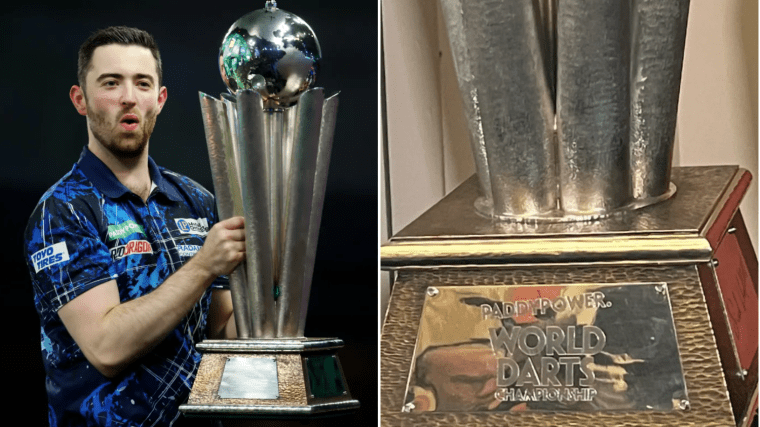
“They’re effectively being groomed. A young generation is being groomed into gambling. There are already tens of thousands of children addicted to gambling in the UK, and every day in the UK, someone takes their own life because of gambling.
“Adverts are the gateway to the harm. The only solution is to end all gambling advertising in sport. And not just in sport, that’d be a great first step, but it needs to happen everywhere, on the TV, on the internet, across billboards. A 16-year-old’s rise means darts will have a massive new following among young people and the number of gambling ads they’re forced to absorb is shocking.”
The adverts come with the usual warnings, and yet the problem has not evaporated. Once, Jonathan Ross was forced to explain to the then Prime Minister David Cameron on his show with almost patronising precision: “David, anybody who wants drugs… can get them.” Gambling too, is illegal for under-18s, but the latest Young People and Gambling Survey found that around 30,000 British youngsters were not just betting, but considered “problem gamblers”.
The house always wins, of course. Nobody is seriously imagining that the bookies have lost out because they cannot swoop in on Littler’s embryonic career just yet. Nobody has taken their eyes off that oche for days, even now the giddy sensation of imminent history has been nipped in the bud. It is estimated that around 500 people put money on Littler to win the whole thing before the tournament had even begun, with odds of up to 100-1. This was nearly the next Leicester City “miracle”.
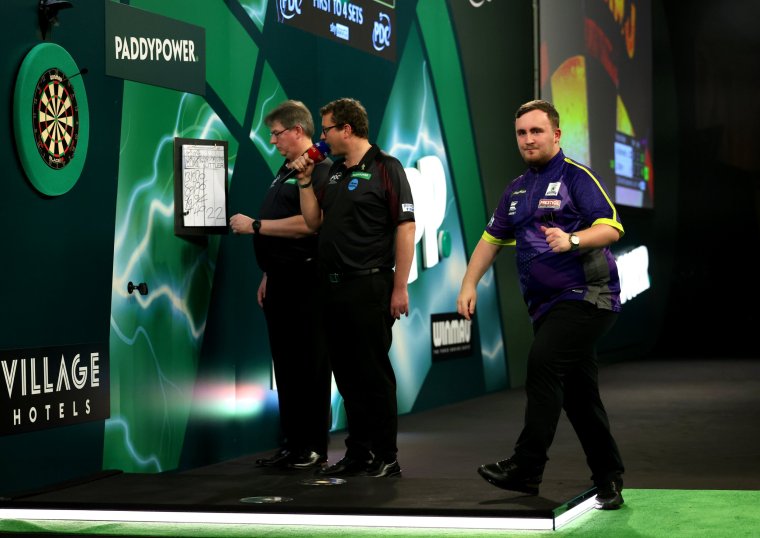
The other side of the coin is that unprecedented publicity has been harnessed towards good causes. Approached by i, Paddy Power noted that they had donated £1m to Prostate Cancer UK and encouraged 180,000 men to get checked as part of their “Big 180” campaign in association with the tournament, with almost 93,000 men following suit – an increase of five-fold.
“While the tournament captured the attention of the nation, we took several preemptive measures to ensure our sponsorship met the highest standards,” a Paddy Power spokesperson told i. “These include swapping our logo for that of Prostate Cancer UK on the shirts of players under 25, as well as the exclusion of these players’ images from all of our promotional material.”
The paradox is that few seriously think of Littler as a child even though youth was the main reason the nation was rooting for him. We want to know what’s next and still, we want him to never grow up, because then the magic will wane.
Adult darts players are skilled but largely because they have probably spent more time in the pub than you – that is not quite so impressive or wholesome.
Littler cannot vote, buy alcohol, get a tattoo, get married, or earn the minimum wage (the last of those is probably the least of his concerns).
Wayne Mardle wrote the book: Slinging Arrows: How (not) to be a professional darts player, but Littler is in so many ways the archetypal oche-maestro – the fact he is not yet dripping in vice is just part of the charm, like when teenage footballers were not allowed their man-of-the-match champagne (a practice long ditched to become more inclusive). After some pressure, English football has also abandoned its front-of-shirt betting sponsors.
And whose job is it to police it anyway? “Sport will not take this away voluntarily, because there’s so much money in it,” Harvey suggests. Some online casino and slot games carry an addiction or “at risk” rate of 50 per cent – meaning as high as one in two people could be affected.
“The Government really needs to step in, either this government or the next, and take action. Sport once complained that taking away tobacco sponsorship would be detrimental and what wasn’t the case. Sport will be fine without gambling ads – that’s absolutely clear.”
The charity Gamble Aware say the government’s White Paper, published last year, was a “missed opportunity to strengthen regulation around gambling advertising in sport”, with CEO Zoe Osmond telling i that “96 per cent of 11- to 24-year-olds have been exposed to gambling marketing activities in the last month, and we know that sport matches are one of the most common ways of being exposed to gambling”.
Perhaps it is time for another rebrand. Darts has already had its big glow-up, now positioning itself as a heroic feat of athleticism, its stars the supermen of the Palace. And indeed Humphries’ story is testament to the mental and physical strength required, the cool mind and steady hands, the eagle eye.
Meanwhile, Peter Crouch guzzles pints in the crowd and grown men dressed as Where’s Wally? holler and shriek at each rendition of Chasing the Sun. You can keep Cristiano Ronaldo’s 3,000 sit-ups a day. This is what the people want. When the fun stops, there is no one with the mind or inclination to stop it.
